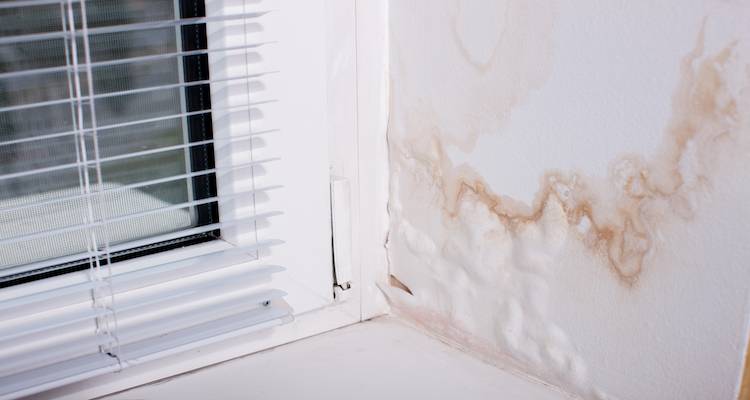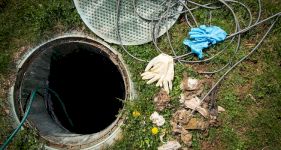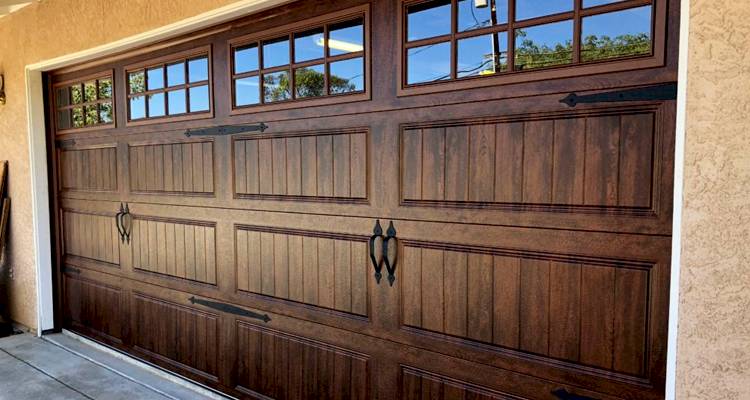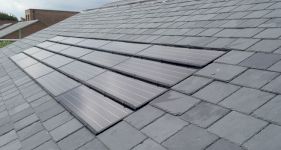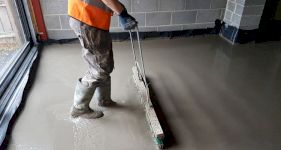Roof Insulation Cost
- The average cost of roof insulation is about £450 (supply and labour).
- It typically takes around 1 to 2 days to complete this type of job.
- How much different types of roof insulation cost in 2025, with a breakdown of what you can expect to pay per square metre for different materials.
- How long insulating a roof takes, and an overview of what's involved.
- How to find a local roof insulation installer using MyJobQuote.
Looking into how much roof insulation costs?
In 2025, the average cost of roof insulation is between £400 and £600.
However, the prices you're quoted by an installer will depend on various factors — including the type of roof you have, the material you want to use, and how much is required.
In this guide, we cover everything you need to know so that you can calculate how much roof insulation costs to get professionally fitted in 2025.
This includes costs for all the different types of roof insulation, such as spray foam insulation, warm roof insulation, fibreglass roof insulation, and pitched roof insulation.
Ready to get a quote?
Get free, no obligation quotes from roof insulation installers near you. MyJobQuote is fast, easy, and connects you with local professionals who can handle this type of job from start to finish.
Want to find out more before you start getting quotes?
For all roof insulation cost details, check out the article below!

£450
Table of Contents
- How Much Is Roof Insulation?
- Roof Insulation Cost Per M² (Materials Only)
- Cost of Installing Roof Insulation (Labour Only)
- What's Involved with Installing Roof Insulation?
- Warm Roof vs Cold Roof Insulation
- Can You Install Roof Insulation Yourself?
- Roof Insulation Options
- Checklist: Hiring a Roof Insulation Installer
- FAQs
How Much Is Roof Insulation?
In 2025, the average cost of professional roof insulation in the UK is between £400 and £600. However, the exact price you're quoted will depends on several factors:
- Type of Roof. Are you looking to install roof insulation on a pitched or flat roof?
- Material. There are a number of options here, including fibreglass, mineral wool, PIR boards, or spray foam. Material costs and how long the job takes will vary depending on what's the best material option in your circumstances.
- Size and Shape. Larger areas and awkward spaces mean that more materials are required and the job takes longer, which means you'll get charged more for labour.
- Location. Labour costs tend to be lower in North England, Wales, and Scotland.
In the UK, most homes have a pitched roof, which is where two sloped sides meet at a central ridge. A roof is usually classed as pitched if the slope exceeds about 10 degrees or it has more than two sides over the ridge.
For pitched roofs, insulation can either be installed above the joists or directly under the slope. The method you choose will affect the overall cost.

There are also many kinds of different materials that can be used to insulate the roof of a property sufficiently. Some of the most common types of roof insulation include Fibreglass Insulation, Insulation Boards or Panels, and Expanding Insulating Foam.
Both the quality and kind of insulation material you use will determine how much the job will cost. When hiring a professional tradesperson to carry out the task of insulating your roof, you will likely need to consider that they will charge either an hourly or daily charge, thus affecting the total cost of your project.
What's the best type of roof insulation boards to use? Is thicker always better?
Roof Insulation Prices
As we previously mentioned, many cost-affecting factors will determine how much installing roof insulation is going to cost. To make things easier for you, we have included a few examples below to see how the varying factors will alter the charge.
Please note that all of the prices included in the table below are estimates and should be used as a guide for demonstrative purposes only. Gaining a quote from a professional tradesperson will give you the most accurate price for your project.
| Type of Insulation | Type of Roof | Area Covered | Installation Time | Cost |
|---|---|---|---|---|
| Fibreglass Insulation | Pitched Roof | 20m² | 1 Day or Less | £380 – £420 |
| Mineral Wool Rolls | Pitched Roof | 20m² | 1 – 2 Days | £400 – £480 |
| Spray Insulation | Pitched Roof | 20m² | 1 Day or Less | £700 – £900 |
| Warm Deck Insulation Boards | Flat Roof | 20m² | 1 – 2 Days | £600 – £700 |
Roof Insulation Cost Per M² (Materials Only)
If you wish to know what the supply only costs are, have a look at the table below for prices of the insulation without the cost of labour:
| Type of Insulation | Cost Per Square Metre |
|---|---|
| Fibreglass Insulation | £4 – £6 |
| Mineral Wool Rolls | £5 – £9 |
| Spray Foam | £20 – £30 |
| Warm Deck Insulation Boards (PIR) | £15 – £40 |
Cost of Installing Roof Insulation (Labour Only)
Labour will usually cost £150 to £200 per day, per tradesperson. So, labour costs depend heavily on how long the job will take. The duration of a job will be between 1-2 days; this can change if your loft is larger.
| Type of Insulation | Type of Roof | Area Covered | Installation Time |
|---|---|---|---|
| Fibreglass Insulation | Pitched Roof | 20m² | 1 Day or Less |
| Mineral Wool Rolls | Pitched Room | 20m² | 1 – 2 Days |
| Spray Foam | Pitched Roof | 20m² | 1 Day or Less |
| Warm Deck Insulation Boards (PIR) | Flat Roof | 20m² | 1 – 2 Days |
What's the difference between cold and warm loft insulation?
What's Involved with Installing Roof Insulation?
Installing roof insulation might sound simple, but it’s not usually a DIY-friendly job. Working in confined spaces, handling bulky materials, and ensuring the correct fit all require experience.
What is your main reason for installing roof insulation?
For best results, most homeowners hire a qualified insulation installer rather than attempting it themselves.
It’s also recommended to get multiple quotes before going ahead. With MyJobQuote, you can get quotes from roof insulation specialists near you. It's fast, free, and there's no obligation to go ahead.
Here’s what to expect from the process:
Before the Job Starts
- Initial Assessment — The installer will measure your roof and check for any failed insulation. They’ll also look for signs of damp or condensation that need to be resolved before work begins.
- Discussing Options — You’ll go through different materials such as fibreglass rolls, PIR boards, or spray foam. The installer will explain how each affects cost and performance.
- Preparation — The roof space must be clear and accessible. Old insulation may need to be removed, and in some cases a removals team will prepare the space before installation.
During the Job
- Fitting the Insulation — The new insulation is installed according to your chosen method. Smaller jobs can take a few hours, while more complex roofs may take 1–2 days.
- Warm Roof Method — Insulation is placed between the weatherproof layer and the rafters, keeping the entire roof space warm.
- Cold Roof Method — Insulation is installed above the joists, which keeps the rooms below warm but leaves the attic cooler.
After the Job
- Final Checks — The installer will ensure everything is fitted correctly and that there are no gaps or issues that could reduce performance.

Warm Roof vs Cold Roof Insulation
The most common method of roof insulation is warm roof insulation. This method consists of the insulation being installed between the roof rafters, keeping the entire roof space warm. This means that any attic or room space above the insulation will maintain heat.
The opposite method, cold roof insulation, is not as cold as the name might suggest! However, this method consists of the insulation being installed above the roof joists, retaining the heat only within the rooms below. This means that any ceiling, attic or room space above the insulation will not maintain as much heat.
If you’re planning major structural work at the same time, see our roof installation guide for methods and costs.
Can You Install Roof Insulation Yourself?
Providing that your access to your attic space is clear and free of any obstructions, it is possible to install roof insulation yourself. However, as with any home improvement project, to achieve the best possible performance and finish, we always advise you to hire a professional.
Depending on your access and spacing between the joists and roof, the job will be much easier to carry out yourself.
While the process itself may be straightforward, many steps must be taken before carrying out the installation that you should not overlook.
Preparing the space for your new insulation is extremely important, and if ignored, could result in costly damage to your property.
If you find that your loft space is suffering from damp and condensation, consider properly treating the issue before installing any new insulation.

Some types of roof insulation will soak up moisture, holding the water in your attic space. This can lead to structural damage and additional problems that will affect your property massively over time. Existing pipework must be appropriately insulated before installing your new roof insulation materials.
If you do not cover the pipes when using a Cold Roof Insulation method, you risk the pipes bursting over time, particularly in freezing conditions, due to the insulation retaining heat in the floors below.
Electrical cables are another hazard that must be attended to properly before installing roof insulation materials. Be sure to leave any wires or cables exposed so that they do not overheat.
Many roof insulation materials can likely cause health problems if mishandled. Fibreglass insulation is commonly known to cause skin irritation and other wellness problems.
If fibreglass insulation is not sealed correctly, the microscopic glass particles may end up circulating in your property's ventilation system, leading to respiratory problems.
For effective results and the best quality finishes when installing your new roof insulation, it is best to leave the job to an experienced professional.
Should I insulate my loft between the ceiling joists or the roof rafters? Or both?
Insulating between the ceiling joists is the most common method and is generally the easiest and least expensive option. It involves laying insulation between the joists, typically using rolls or batts of insulation.
Insulating between the roof rafters, on the other hand, involves placing insulation in the space between the roof rafters. This can be a good option if you plan to use your loft space as a living area or if you want to create a warm roof space to prevent issues like ice damming.
In some cases, it may be possible or advisable to do both, depending on your goals for the space and the condition of the roof."
Roof Insulation Options

As we briefly covered earlier, there are many different methods of roof insulation and materials that can be used to achieve effective results. Insulating the roof of your property is proven to be one of the most efficient ways of saving energy and reducing household running costs.
A well-insulated home is estimated to save the homeowner a whopping £250 per year on energy bills alone.
Roughly 25% of heat is emitted through the roofs of un-insulated properties, so choosing the right method of insulation is essential.
How much does increasing insulation thickness raise a room’s temperature? Does it work like that, or is it more complex?
Fibreglass Wool Insulation Cost
The most popular choice amongst homeowners for roof insulation is Fibreglass Wool. Thin strands of glass are heated and spun to create a thick fibre that, as the name suggests, resembles wool.
This excellent insulator is a great budget choice and can be purchased in long rolls, making it a cost-effective solution. On average, Fibreglass Wool insulation costs around £25 per square metre.

Mineral Wool Insulation Cost
Similar to Fibreglass wool is Mineral wool Insulation. In this case, rocks such as dolomite are heated and spun repeatedly to create a dense, wool-like fibre.
Like Fibreglass, Rock or Mineral wool insulation can be purchased in large mats or rolls and is another budget-friendly option, costing around £20 to £25 per square metre.
PIR Boards (Warm Deck) Cost
PIR insulation boards are widely used in warm deck systems, especially for flat roof replacement projects. They offer strong thermal performance with less thickness compared to rolls, but are generally more expensive. Expect to pay around £15–£40 per m² (supply only), or higher once fitted.
Sheep Wool Insulation Cost
If you are looking to source an eco-friendly option, you may like to consider using Sheep wool insulation. Similar to Rock and Fibreglass Wool, the Sheep wool is available in large rolls.
However, this natural alternative is much more expensive to buy and may set you back around £50 to £60 per square metre. Sheep wool is much more pleasing to work with and is less of an irritant when compared to other types of insulation.
Plastic or Polyester Insulation Cost
Plastic or Polyester fibre rolls are similar to Sheep wool insulation, being less of a health hazard to work with. They are also an eco-friendly alternative as they are usually made with recycled materials.
Plastic and polyester insulation is generally cheaper than Sheep wool insulation, but not as affordable as fibreglass. On average, Polyester insulation will cost around £35 per square metre.
Spray Foam Insulation Cost
Expanding foam insulation is a common choice amongst many homeowners for roof insulation. Thanks to the material's fantastic resistance to heat flow, spray expanding foam is a very effective insulator.
Due to the spray application, the expanding foam will achieve a better air-tight seal in smaller cavities, reducing heat loss.

While the initial cost may be higher compared to alternative insulation materials, it is expected that you will save more money in the long run on energy expenses. Spray foam insulation costs, on average, around £35 to £40 per square metre.
Checklist: Hiring a Roof Insulation Installer
- Post what you're looking to do on MyJobQuote and get multiple quotes from tradesman in your area.
- Be sure to check that your tradesperson is qualified and experienced to carry out the job.
- You can also check reviews and ratings from other homeowners that have used a tradesperson that you've found through MyJobQuote.
- Discuss with your tradesperson the various methods of insulation and materials they recommend for your project.
- Never pay the full amount upfront and always ask for a written cost breakdown.
- If a deposit is required, make sure that you receive proof in writing of any transactions, including the final price.
- Ask your tradesperson for a timeline of the project, including start and finish dates.
FAQs
What does roof insulation do?
Does roof insulation affect ventilation?
What is the best insulation for a roof?
Can you get free loft insulation?
How do I know if my roof insulation needs replacing?
How long does roof insulation last?
How thick should roof insulation be?
Can you use spray foam insulation for a roof?
However, some lenders and valuers may be cautious about spray foam on roof structures without a professional assessment of ventilation and timber condition. You should get advice from a qualified installer and check with your lender before proceeding.




